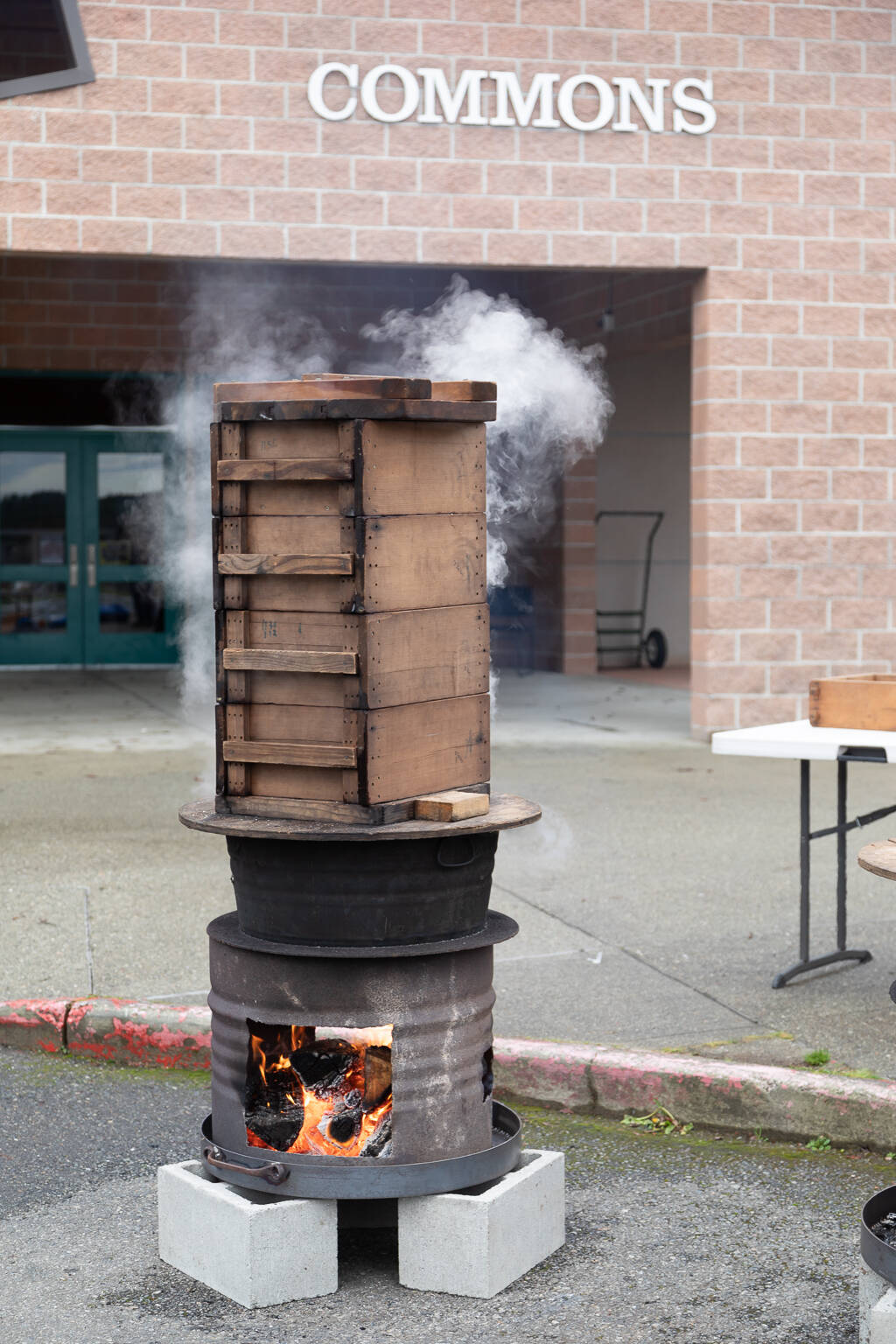After a two-year pause due to COVID, the Bainbridge Island Japanese American Community will usher in the New Year at the Mochi Tsuki celebration at Woodward Middle School Jan. 7 from 11 a.m. to 3 p.m.
The time-honored tradition consists of steaming sweet rice in wooden boxes and then pounding it into a soft mash for making mochi treats like cakes.
BIJAC president Carol Reitz said the group is planning to host up to 2,000 visitors, as people have missed attending in person. “Even the volunteers, who can get worn out from the event, are looking forward to it, and they see it as a valuable community connector. We have many new volunteers, which is exciting to teach them about this event and our history.”
There will be some changes, including a new mochi master leading the rice pounding at the usu, a granite bowl. Also, an Obon dance workshop will introduce guests to a summer dance tradition, and the event will be live-streamed.
Tony Egashira is the new Mochi Master, and new mallets will be made by Mike Okano, who sourced the wood from an island cherry tree. “In 2020, we officially thanked Shoichi Sugiyama for his many years of service, and handed over the mallet to the next generation,” Reitz said of Egashira.
The celebration will also include Seattle Kokon Taiko drumming performances.
Obon will be introduced by several Japanese women who grew up dancing in Obon festivals. Mariko Green and Katsumi Frogner will lead the group dancing concept. “It’s fun and active,” Reitz said.
Other highlights include: origami, educational displays and the premier of the short documentary film, “Point of Departure,” which was selected for the 12th annual Films of Remembrance festival in San Francisco Feb. 25.
Parking will be available at Woodward, Sakai Intermediate School and the Island Church on Sportsman Road. To volunteer or learn more go to bijac.org.



